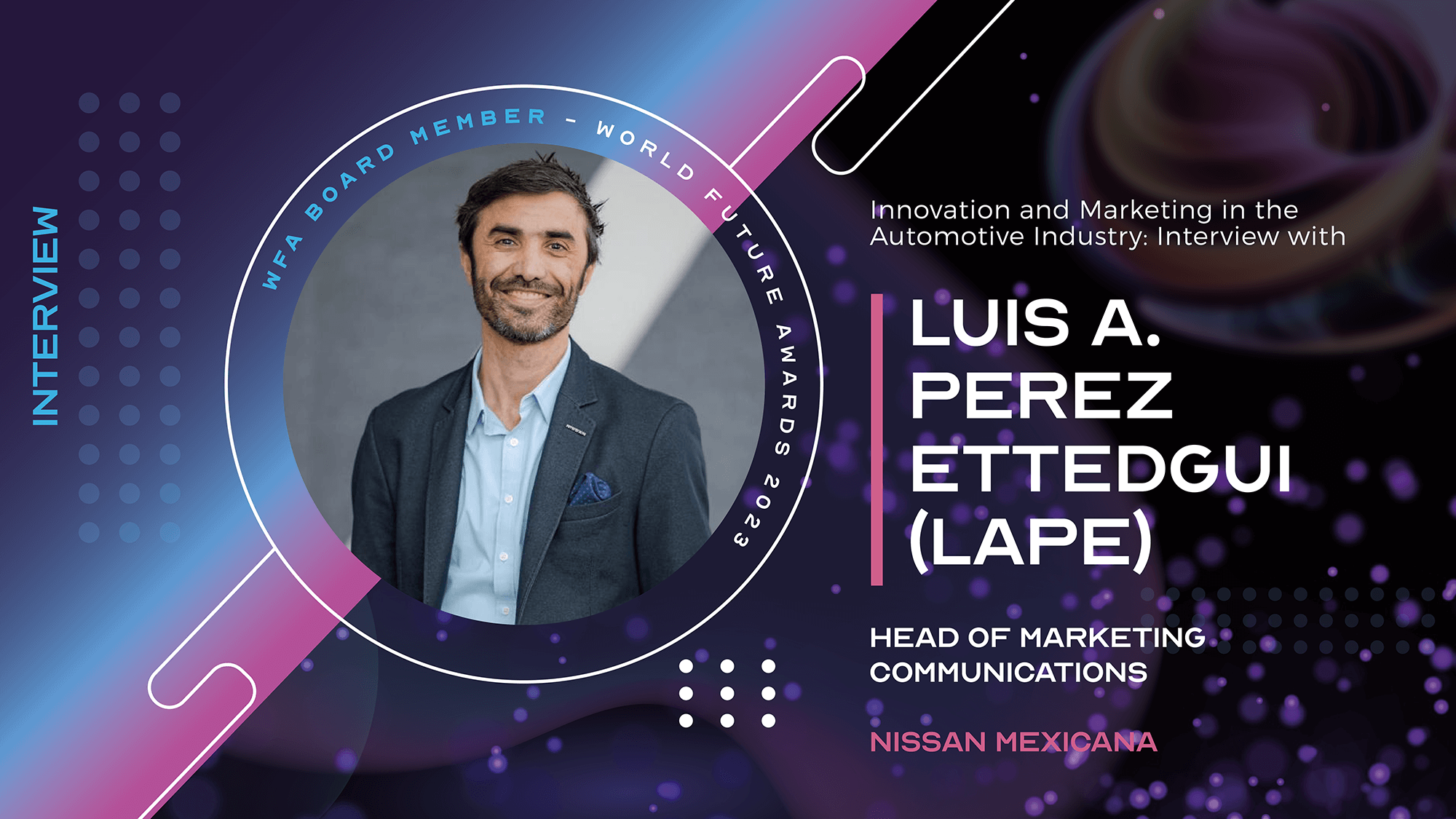
Innovation and Marketing in the Automotive Industry: Interview with Luis Alberto Perez Ettedgui
In today’s environment of transforming markets and mass communication, marketing departments are forced to demonstrate marvels of flexibility and adaptation. Exciting things are happening in the industry, and to gain some insights into what marketing is today and what it will be tomorrow, we interviewed Luis Alberto Perez Ettedgui, the World Future Awards board member. With his extensive experience and outstanding track record of marketing at the forefront of the automotive industry, Luis will help break new ground for WFA nominees.
World Future Awards: Luis, please accept our congratulations on joining the World Future Awards board. Tell our readers a little bit about yourself. What is your professional background and achievements in the field of marketing?
Luis Alberto Perez Ettedgui: Thank you for your congratulations on my appointment to the World Future Awards board. My journey in the automotive sector began with General Motors, where I spent 11 impactful years in Venezuela after obtaining my engineering degree. One of the achievements that stands out the most to me is the successful pre-sale of 7000 Hummers SUVs in just one week in 2008. This ground-breaking initiative, conducted entirely online with down payments, marked a significant moment as we became the first brand in the country to execute such a disruptive approach.
Following my tenure with GM, I ventured into start-up mode in Brazil, collaborating with a provider of the OnStar brand to introduce Telematics services to the Brazilian market. This endeavor was particularly challenging, given the Andean countries had 15 years of experience in the field. Subsequently, I seized the opportunity to relocate to Mexico with Nissan, embarking on a spectacular journey. Leading the regional marketing team, I took pride in overseeing the simultaneous launch of the first passenger electric vehicle across four countries.
During the pandemic, we executed an innovative communication campaign for the Nissan Kicks in Brazil, featuring the first drone show created for an automotive brand in Latin America. Additionally, we defied conventions by introducing an SUV edition accompanied by an NFT, symbolizing its distinctiveness.
I am proud to share that I have garnered multiple awards in the advertising arena, boasting a collection of more than fifteen distinctions; nice of them are Effies, which underscore my achievements in the field. Building on this success, our recent endeavors in Mexico further solidified our industry standing. I am thrilled to announce that we have been shortlisted in two categories for the Effies Awards, a testament to the dedication and innovation that characterizes our work. These accolades reflect personal accomplishments and the collaborative efforts of a dynamic team committed to pushing the boundaries of creativity and excellence in advertising.
My passion lies in pushing boundaries and challenging the status quo. Over the past nine years with Nissan, a company with a daring DNA, I’ve embraced opportunities to “dare to do what others don’t.”
I look forward to bringing this innovative spirit to my World Future Awards board role.
WFA: Your career has been closely tied to the automotive industry. What attracts you and has kept you in this field for more than 15 years?
LAPE: Cars hold a special place in our lives, bearing witness to valued moments shared with family and loved ones. Over my more than 15 years in the automotive industry, I’ve discovered that once you become a part of this world, the love for engines – whether powered by gasoline or electricity – becomes an intrinsic part of who you are. It’s a field that pulses with passion and excitement, embodying the role of an ‘Engineer of Emotions.’
This phrase encapsulates the essence of our work, which goes beyond a job – it’s a long-term career requiring an integral mindset of strategic and systemic thinking, considering the multitude of stakeholders involved. The automotive industry is a realm of endless possibilities for innovation and experimentation. We are currently amidst significant global changes, and I desire to continue participating in these transformative shifts, contributing to the ongoing evolution of an industry that holds both personal and professional significance for me.
WFA: What fundamental changes in the industry have you witnessed over the years that you have been in business?
I’ve witnessed many transformative changes within the automotive industry throughout my career. The progression from cassette tapes to cutting-edge technologies like Bluetooth and touch-based infotainment systems is just a glimpse of the dynamic evolution that has reshaped the industry’s landscape.
One of the most remarkable shifts has been integrating advanced driver assistance systems, elevating vehicles into technological marvels with a strong commitment to achieving zero fatalities. Presently, we are navigating through five pivotal changes:
• Connected: Vehicles are increasingly interlinked with the internet and each other, fostering a comprehensive ecosystem that enhances safety, navigation, and entertainment options by seamlessly integrating cars, infrastructure, and external services.
• Autonomous: The emergence of self-driving technologies fundamentally reshapes the automotive narrative. Autonomous vehicles, capable of navigating without human intervention, are revolutionizing safety standards and operational efficiency.
• Shared: We are experiencing a paradigm shift from individually owned vehicles to collaborative mobility services. Ridesharing, car-sharing, and innovative mobility-as-a-service models are optimizing vehicle usage, contributing to a reduction in the overall number of vehicles on the road.
• Electric: Accelerating electric vehicle (EV) adoption marks a monumental step towards sustainable transportation. This transition is not merely a trend but a substantial move away from traditional internal combustion engines, aiming to curtail carbon emissions and dependence on fossil fuels.
• Dealers: The traditional automotive business model, entrenched for over a century, is undergoing a profound redesign. Dealerships and Original Equipment Manufacturers (OEMs) are embracing transformation to redefine and enhance the customer experience.
The current state of the automotive industry is nothing short of fascinating. Electric vehicles are not just a fleeting trend but a lasting reality, and the vast potential of autonomous driving systems is yet to be fully harnessed. I eagerly anticipate the myriad of exciting developments on the horizon.
WFA: How would you describe marketing specifics in the automotive industry? What changes do you foresee for the near future?
LAPE: Marketing in the automotive industry is a multifaceted domain that demands a keen understanding, particularly in systemic thinking, due to its inherent complexities. The dynamics of automotive marketing are evolving remarkably, spurred by the dawn of a new era in customer experience. Today’s customers, characterized by a lack of brand loyalty, expect excellence from every brand interaction, transcending industry boundaries. More than merely excelling within the automotive sector is required; the expectation is to stand out across various sectors.
This paradigm shift necessitates recalibrating marketing strategies, emphasizing an integrated digital ecosystem. The COVID-19 pandemic has further accelerated this transformation, particularly considering that the Gen Z and Millennial generations, as digital natives, now dominate the consumer landscape. While undoubtedly crucial, data is no longer just about its capture data volume; it’s about the adept use and sophisticated analysis of this data. In this regard, a significant transformation looms – integrating Artificial Intelligence (AI).
Looking ahead, marketing trends in the automotive industry will be deeply influenced by the widespread adoption of AI. This technology is poised to revolutionize the industry, expediting numerous marketing processes. From personalized customer experiences to targeted advertising, AI holds the key to unlocking unprecedented levels of efficiency and effectiveness.
Moreover, the role of agencies in advertising and media is undergoing a profound shift. Traditional models are giving way to more dynamic, data-driven strategies. Agencies must reinvent themselves to harness the power of AI and adapt to the evolving needs of clients and consumers alike.
In essence, the future of automotive marketing lies in the seamless integration of technology, data analytics, and AI. Staying ahead of these trends will be crucial for industry players, ensuring relevance and sustained success in an ever-evolving marketing landscape.
WFA: How is technological progress affecting marketing strategies? What examples of this impact could you give?
LAPE: The marketing strategies across various industries, including the automotive sector, have significantly transformed due to technological progress. Advanced technologies have revolutionized consumer reach and redefined customer engagement.
One of the most impactful examples is the rise of data analytics. Marketers can now gather and analyze vast amounts of consumer data, enabling them to understand their audience on a granular level. This allows them to create highly targeted and personalized marketing campaigns. For instance, in the automotive industry, data-driven insights enable marketers to tailor their messaging to specific demographics, ensuring their campaigns resonate effectively.
Another transformative aspect is integrating artificial intelligence (AI) into marketing strategies. By automating routine tasks, AI enhances efficiency and allows marketers to focus on more strategic, creative endeavors. Chatbots, for instance, have become commonplace, providing instant and personalized customer interactions. In the automotive industry, AI plays a crucial role in predicting consumer preferences and behavior, aiding in developing more effective marketing approaches.
The advent of social media platforms has also profoundly impacted marketing strategies. Platforms such as Instagram, Twitter, and Facebook provide an unparalleled opportunity for direct consumer engagement. Leveraging these platforms allows marketers to create immersive brand experiences and connect with their audience in real time. In the automotive sector, social media has become a dynamic space for unveiling new models, sharing behind-the-scenes content, and fostering a sense of community among enthusiasts.
Overall, technological progress has ushered in an era of unprecedented connectivity and engagement. Embracing these innovations keeps businesses at the forefront of marketing trends and ensures that their strategies are agile and responsive to the evolving expectations of their audience.
WFA: What innovative marketing solutions or approaches have you been able to implement over the past few years?
LAPE: Our commitment to collaborative work environments has been instrumental in our success. By fostering a culture of teamwork, we’ve unlocked innovative ideas and approaches. This collaborative spirit extends beyond our internal teams to our partnerships with agencies and other stakeholders, ensuring we’re collectively pushing the boundaries of creativity and disruption. Speaking of disruption, we’ve deliberately embraced a disruptive mindset. From groundbreaking campaigns like the special edition SUV linked to NFT to unconventional marketing strategies, we’ve actively sought opportunities to stand out in a crowded market. This commitment to disruption has allowed us to captivate our audience’s attention and differentiate ourselves in an ever-evolving landscape.
Furthermore, we’ve significantly emphasized customer experience as an integral part of our approach. We’ve carefully curated strategies to enhance every customer touchpoint, ensuring a seamless and delightful journey. This customer-centric focus has strengthened brand loyalty and positioned us as a leader in delivering exceptional experiences in the automotive industry. In addition, our strategy includes very close collaboration with our network of dealers. This partnership ensures that our marketing initiatives are aligned with the goals and needs of our dealerships, creating a cohesive and unified brand experience for our customers.
Moreover, we’ve implemented a fantastic strategy for our branded house, ensuring a consistent and cohesive brand identity across all our products and services, connecting all brand ecosystems. This approach fosters brand recognition and loyalty, creating a powerful and resonant brand presence in the market. Our approach revolves around precision marketing, collaboration, digitalization, personalization, a disruptive mindset, close collaboration with dealers, and a steadfast commitment to elevating the customer experience. Additionally, our fantastic strategy of a branded house ensures a unified brand identity that resonates across the automotive landscape in Mexico and beyond, positioning Nissan as the leader in the market. These strategies collectively represent our commitment to staying at the forefront of innovative marketing in the automotive industry, ensuring that our brand remains relevant and pioneering in its engagement with the consumer.
WFA: The automotive market is becoming more and more sustainable and electrified. How significant are the differences between the marketing campaigns for gasoline-powered cars and electric Cars?
LAPE: The automotive industry is undergoing a transformative shift with the rise of electrification, and it’s essential to recognize that not all electric vehicles are fully electric. Technologies like Nissan’s e-POWER provide a unique solution, allowing electrification in emerging markets. This innovative technology offers a plug-free electric driving experience, utilizing a petrol engine to charge a battery and power an electric motor, ultimately driving the wheels. It’s crucial to clarify that this isn’t a hybrid vehicle but a distinctive approach to electrification.
Despite the significant changes brought by electrification, marketing campaigns in the automotive industry have remained mostly consistent. However, the focus must be on crafting messages that resonate with consumers. Potential electric vehicle buyers may have concerns like range anxiety or uncertainty about charging infrastructure. Therefore, effective campaigns aim to address these concerns while emphasizing the enjoyable aspects of electric car driving.
Notably, despite the growth in the electric vehicle market, projections suggest a 40% penetration rate by 2030, leaving a substantial 60% still powered by Internal Combustion Engines (ICE). The transition from traditional vehicles to electric ones is undoubtedly impactful, as those who experience electric or electric-powered vehicles often find it challenging to revert to ICE-powered ones.
Establishing a relevant ecosystem that consistently surprises customers at every touchpoint is pivotal for brands. In an era where brand loyalty decreases, forming a solid and lasting connection with customers becomes indispensable. As the automotive landscape continues to evolve, navigating these changes with strategic and customer-centric marketing remains paramount for sustained success.
WFA: Based on your experience, what are the must-have components of a successful marketing campaign?
LAPE: In my experience, a successful marketing campaign is built on several key components. First and foremost is a deep understanding of the target audience. Knowing who you are trying to reach allows you to tailor your message to resonate with them.
Next, a clear and compelling message is crucial. The core of your campaign should communicate the value proposition effectively and differentiate your product or service from the competition. This message should be consistent across all channels to ensure a unified brand image.
Strategic planning and thorough research play a pivotal role. This involves identifying the most effective channels to reach your audience, understanding market trends, and conducting competitor analysis. It’s essential to stay ahead of industry shifts and consumer behaviors.
Moreover, creativity is a driving force. Creativity captures attention and leaves a lasting impression through engaging content, innovative campaigns, or unique storytelling. However, creativity should always be aligned with the overall brand strategy.
Measurement and analysis are often overlooked but are equally crucial. Implementing key performance indicators (KPIs) and regularly assessing campaign performance allows for real-time adjustments. This data-driven approach ensures continuous improvement and a higher return on investment.
Lastly, adaptability is essential. The marketing landscape is dynamic, and adapting to changes, whether in consumer behavior, technology, or industry trends, is vital to long-term success.
WFA: What event, product, or trend in the automotive market has been the most exciting for you in the last five years from a professional’s perspective?
LAPE: The automotive industry has seen significant milestones and transformative developments in the last five years, making it an exhilarating period. As a professional, I was part of the team that launched the multi-award-winning Nissan Kicks, designed meticulously for the diverse Latin American markets. It was a moment of immense pride to see the success of the innovative design, strategic marketing, and deep understanding of regional preferences that went into the vehicle.
In 2019, the simultaneous launch of the Nissan Leaf, the first passenger electric vehicle in Latin American markets, was a groundbreaking experience. It was a bold step towards sustainable mobility and showcased the region’s readiness for cutting-edge automotive technologies. The introduction of Nissan e-POWER technology on January 23 added to the excitement. This innovation represented a pivotal shift in the automotive landscape, providing a unique plug-free electric driving experience by utilizing a petrol engine to charge a battery and drive an electric motor. It exemplified our commitment to offering diverse and sustainable mobility solutions.
Lastly, the pandemic sparked an accelerated digital transformation that we have been integral in navigating through. It has been challenging and rewarding, reinforcing the importance of agility, innovation, and adaptability. Embracing digital advancements has enhanced operational efficiency and opened new avenues for customer engagement and brand experiences.
Every milestone, from launching innovative vehicles to embracing sustainable technologies and driving digital transformation, has been a source of excitement and professional fulfilment. These experiences collectively represent the dynamic and progressive nature of the automotive industry.
WFA: As the World Future Awards board member, what criteria do you put at the top of your mind for selecting and judging nominees?
LAPE: As a judge for the World Future Awards, I prioritize innovation and disruption as key criteria when evaluating nominees. I am particularly drawn to ideas that push beyond conventional boundaries and provoke discomfort because, in my experience, these are often the most transformative. I actively pursue ideas challenging the status quo, even if they unsettle superiors.
However, innovation and disruption should always serve a purpose. There must be a tangible benefit, which should be scalable to have a widespread impact. I am particularly interested in solutions that address mobility challenges, an area of constant evolution and transformation.
I invite anyone with unique and innovative ideas to participate in the World Future Awards actively. Our collective responsibility is to shape a sustainable and thriving future for future generations.
To learn more about Luis, visit his LinkedIn profile here.
MORE NEWS
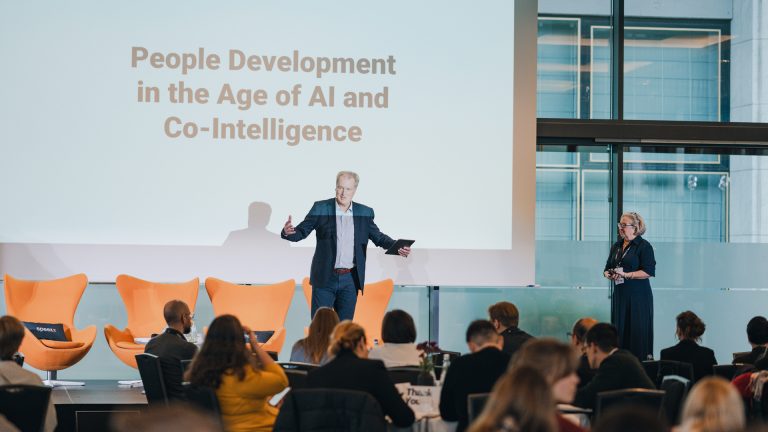
Defining the Next Era of People Development

Speexx Awarded for Global Workforce Development Innovation
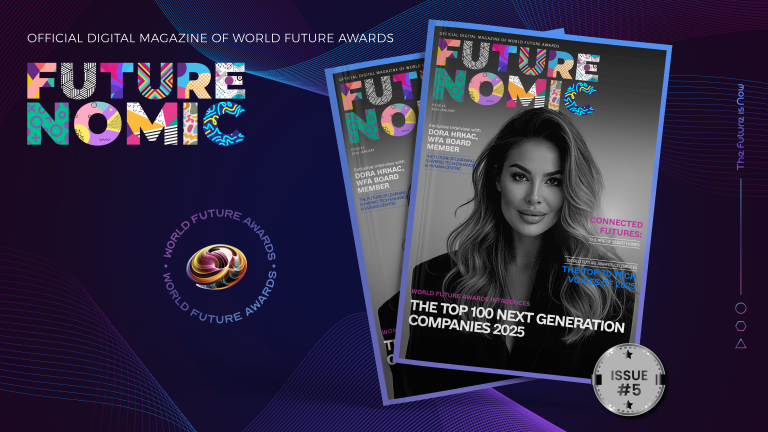
World Future Awards Releases Futurenomics Digital Issue #5
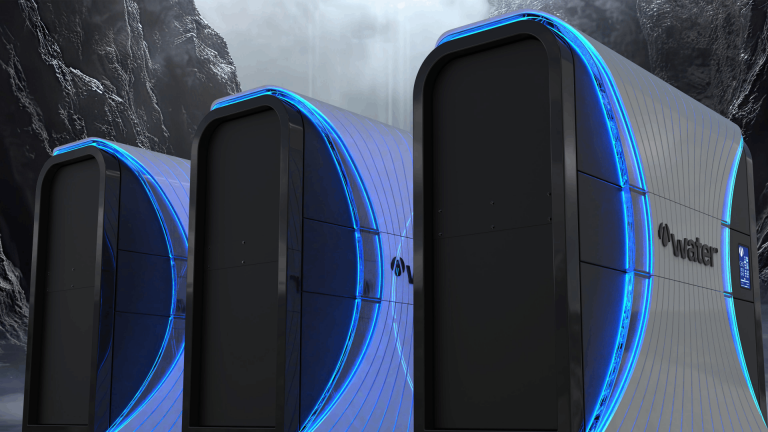
VVater Named One of World Future Awards’ Top 100 Next Generation Companies for 2025
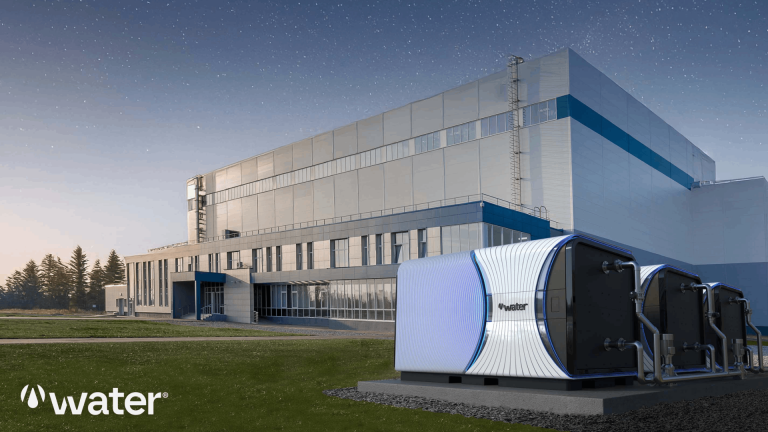
VVater – Pioneering the Future of Water Technology

The 2025 Tech Christmas List: 11 Gifts for Forward Thinkers

BitFuFu Named Among World Future Awards’ TOP 100 Next Generation Companies
NEWSLETTER
Sign up to learn more about our project and to stay up to date.

